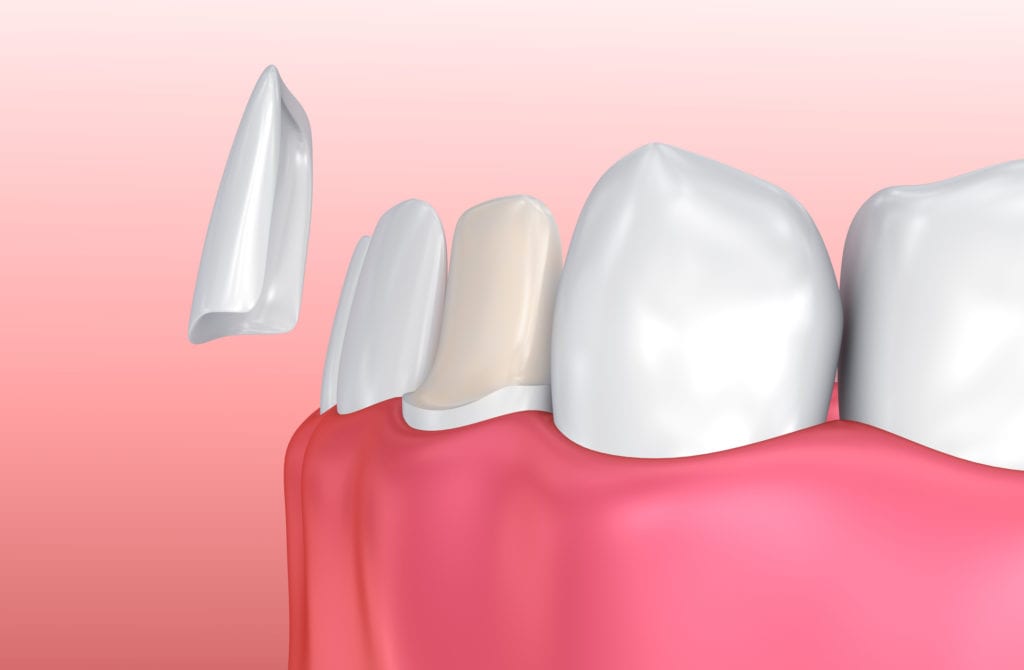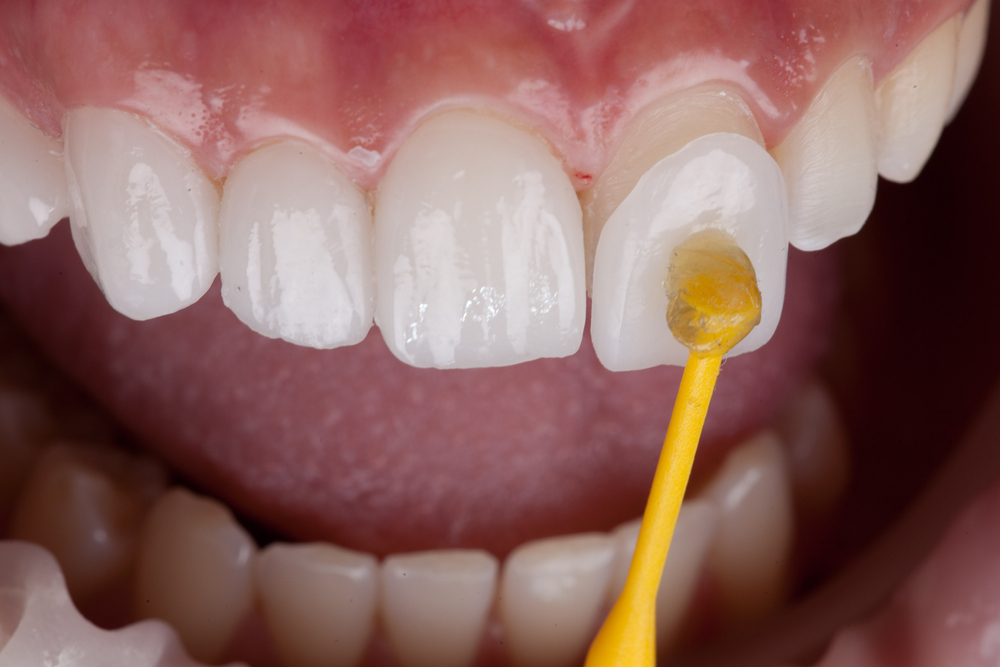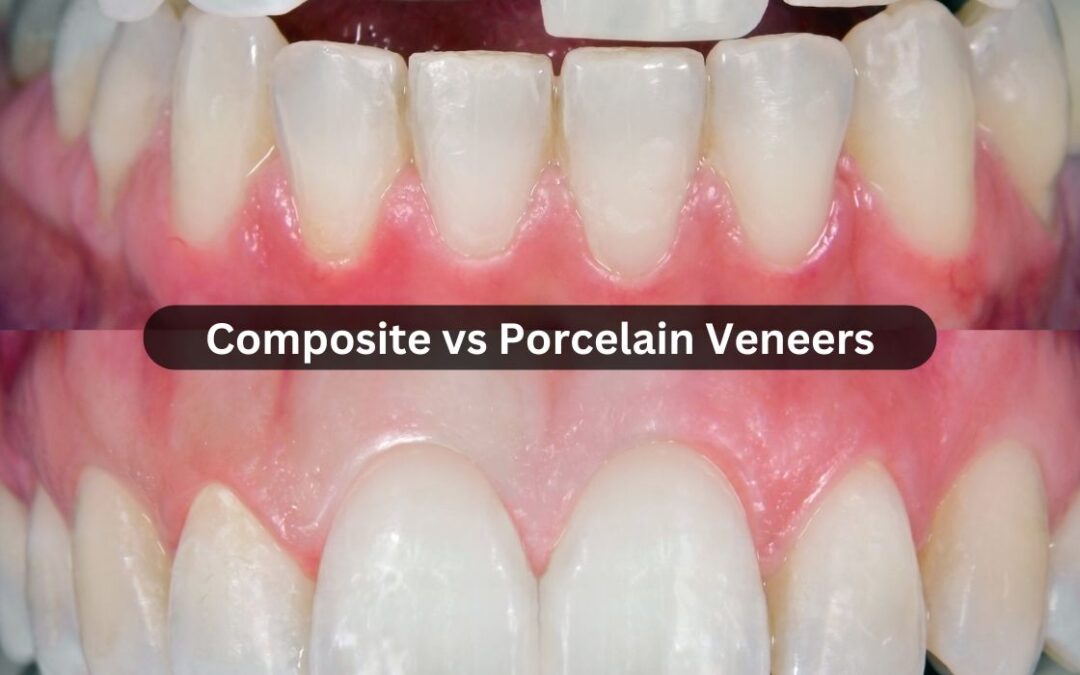Unlocking the Secrets of Veneers: Truths, Types, and Benefits for a Lovely Smile
Veneers offer a compelling remedy for those seeking to boost their smiles. These dental enhancements can resolve numerous imperfections, from staining to misalignment. With alternatives like porcelain and composite, individuals can pick based on their preferences and needs. However, comprehending the subtleties of veneers, consisting of application and care, is crucial. What elements should one consider before deciding? The responses may shock those interested in this visual oral alternative.

Recognizing Veneers: What Are They?
Veneers are thin, customized shells made to cover the front surface area of teeth, boosting their look. Commonly crafted from sturdy materials, these coverings are customized to fit each person's teeth precisely. They offer multiple objectives, including fixing aesthetic flaws such as discoloration, chips, or voids. The application process involves a dentist preparing the teeth, commonly by eliminating a percentage of enamel to guarantee a snug fit. Once prepared, the veneers are bonded to the teeth utilizing a strong adhesive.
Patients frequently choose veneers for their ability to develop a natural-looking smile while offering a long-lasting solution to dental flaws. Unlike various other cosmetic dental care choices, veneers call for very little intrusive treatments, making them a popular selection. The result is an improved smile that can considerably boost an individual's self-confidence and self-worth. In general, veneers provide a reliable method to attaining an extra harmonious and appealing oral appearance.
Types of Veneers: Porcelain vs. Composite
When taking into consideration aesthetic oral alternatives, two key kinds of veneers stand apart: porcelain and composite. Porcelain veneers are crafted from a sturdy ceramic material that simulates the all-natural look of teeth. They are understood for their tarnish resistance and capacity to mirror light similarly to all-natural enamel, giving an aesthetic appeal that numerous clients wish. The application procedure normally involves even more preparation of the tooth framework and may need several visits to the dental expert.
On the various other hand, composite veneers are made from a tooth-colored resin that is directly put on the teeth. This kind permits quicker application and can commonly be finished in a single browse through. While they are more economical than porcelain veneers, they might not provide the same long life or resistance to discoloration. Inevitably, the option in between porcelain and composite veneers depends upon private choices, budget plan, and particular oral demands.
The Advantages of Picking Veneers
Choosing veneers provides numerous benefits that can considerably boost both the visual appeals and performance of an individual's smile. One of the key benefits is their ability to correct blemishes such as discoloration, gaps, and imbalance, causing a more consistent appearance. Veneers can likewise improve the resilience of teeth, giving a safety layer that guards them from damages.
In addition, they require marginal tooth prep work contrasted to other oral procedures, maintaining even more of the natural tooth framework. This conservation adds to a much healthier oral setting while still achieving a magnificent smile.
Veneers are very personalized, permitting individuals to choose the form, size, and shade that best fits their choices. Furthermore, they are stain-resistant, making it much easier to maintain a brilliant and attractive smile over time. Overall, veneers offer an efficient option for those looking for both aesthetic improvement and long-lasting oral wellness benefits.
The Veneer Application Refine
The veneer application procedure includes a number of crucial actions to ensure suitable results. Originally, an examination is conducted to examine the patient's demands, complied with by the preparation and shaping of the teeth. The veneers are bonded in place, with modifications made for an ideal fit and appearance.
First Consultation Tips
An extensive first consultation is essential for any person thinking about veneers, as it sets the foundation for a successful therapy. Throughout this conference, the dental expert reviews the individual's oral health and wellness, talking about any type of existing concerns that might impact the veneer application. This analysis may include X-rays and a visual assessment to identify the problem of the teeth and gum tissues.
The dental expert also engages the person in a comprehensive discussion regarding their aesthetic objectives, preferences, and expectations. They might offer different veneer options tailored to the patient's specific requirements. In addition, the professional describes the procedure, prospective dangers, and aftercare demands, guaranteeing that the client is comfy and knowledgeable prior to waging the treatment.
Preparation and Shaping Teeth
After the initial assessment, the next phase includes the prep work and shaping of the teeth to suit the veneers. This essential step is carried out by the dental professional, who carefully assesses the tooth framework to determine the quantity of enamel that needs to be removed. Generally, a thin layer, normally around 0.5 millimeters, is shaved off to ensure a proper fit for the veneers. Accuracy is critical during this procedure, as it affects both the overall convenience and the visual result. Once the teeth are effectively formed, perceptions are required to develop customized veneers that line up perfectly with the client's oral account. This meticulous prep work sets the phase for a successful veneer application, improving both appearance and function.
Bonding and Last Adjustments
Complying with the shaping and prep work of the teeth, the bonding process begins, noting a crucial phase in the veneer application. During this phase, a dental adhesive is used to the ready tooth surface area, assuring a solid bond between the tooth and the veneer. The dentist thoroughly positions the veneer, making modifications to accomplish the wanted positioning and visual appeals. As soon as properly positioned, a special light is used to cure the sticky, solidifying the bond. After healing, the dental practitioner carries out last changes, cutting any excess product and improving the veneer's shape to assure a natural appearance. This mindful focus to detail improves both feature and aesthetics, adding to an overall attractive smile that is long lasting and lasting.
Caring for Your Veneers: Maintenance Tips
Caring for veneers is essential to preserve their look and longevity. A regular everyday cleaning routine, conscious avoidance of staining foods, and regular oral exams are key components of efficient maintenance. These techniques aid assure that veneers remain in peak condition and remain to boost one's smile.
Daily Cleaning Routine
Consistently keeping veneers is necessary for their longevity and appearance. A correct daily cleaning routine can assist preserve their sparkle and protect against damage. Dental practitioners suggest brushing twice a day with a soft-bristled tooth brush and fluoride toothpaste, ensuring that all surfaces are cleaned delicately to prevent scraping the veneer surface area. Flossing everyday is additionally essential to remove food particles and plaque from in between teeth, where brushes might not reach. Additionally, utilizing an antimicrobial mouth wash can assist maintain dental health without harming the veneers. It is suggested to avoid unpleasant cleaners and devices that can damage the veneer. By following these straightforward steps, individuals can maintain their veneers looking beautiful while advertising overall dental health.
Avoiding Discoloration Foods
Veneers are made to enhance the appearance of teeth, their vulnerability to discoloring demands cautious nutritional options. It is important for individuals with veneers to be conscious of particular foods and beverages that can cause staining. Dark-colored things such as coffee, red a glass of wine, and berry juices must be consumed in moderation, as they are recognized to tarnish both all-natural teeth and veneers. In addition, acidic foods like citrus fruits can deteriorate the bonding agents used in veneers, making them more vulnerable to discoloration. To keep a brilliant smile, it is suggested to rinse the mouth with water after taking in discoloration foods and to practice regular oral health. These thoughtful options add considerably to the long life and looks of veneers.

Routine Oral Examinations

Preserving the integrity of veneers calls for a commitment to routine oral exams, as these appointments play an important duty in guaranteeing their longevity and appearance. Throughout these brows through, dental professionals can evaluate the problem of the veneers, checking for any signs of wear, damage, or underlying oral problems. Additionally, regular cleansings aid look at more info remove plaque and tartar that can build up around the veneers, advertising general oral health. Dentists can likewise offer individualized recommendations on treatment methods and products matched for veneer maintenance. By adhering to a timetable of exams, individuals can resolve possible troubles early, ensuring their smile continues to be gorgeous and lively. Inevitably, regular oral check outs are an essential component of veneer care.
Is Veneers the Right Choice for You?
Determining whether veneers are the right alternative often rests on specific oral demands and visual goals. For those seeking to deal with issues such as staining, chips, or imbalance, veneers can offer a transformative solution. Prospects commonly consist of individuals with healthy and balanced teeth but desire an improved smile.
Nonetheless, it is essential to take into consideration elements such as tooth enamel condition, the extent of dental concerns, and the readiness to preserve veneers - Veneers Teeth. Consulting with a dental professional is crucial, as they can assess oral wellness and identify if veneers are appropriate
Furthermore, prospective candidates should review the long-term commitment, as veneers may require substitute every 10-15 years. Cost factors to consider additionally play a substantial duty, as veneers can be a considerable investment. Inevitably, the decision needs to be educated, balancing visual wishes with practical factors to consider for lasting outcomes.
Frequently Asked Questions
The Length Of Time Do Veneers Typically Last Before Needing Replacement?
Veneers typically last between 10 to 15 years before needing replacement. Variables such as dental health, way of living selections, and worldly high quality can affect their long life, making regular dental examinations necessary for preserving their condition.
Are Veneers Safe for Individuals With Delicate Teeth?
Veneers can be safe for individuals with sensitive teeth, yet it usually depends on the intensity of sensitivity and the dentist's method. Consulting a dental expert prior to continuing is crucial to ensure perfect outcomes.
Can Veneers Be Removed or Changed Conveniently?

Do Veneers Spot With Time, and Just How Can I Prevent It?
Veneers can stain over time, especially from foods and drinks like coffee or red wine. To stop discoloration, maintaining great dental health, making use of a straw for beverages, and normal oral cleanings are suggested methods.
What Is the Cost Range for Getting Veneers?
The price of veneers usually ranges from $500 to $2,500 per tooth, relying on aspects such as material kind, dental expert experience, and place. People need to talk to oral experts for personalized quotes and funding choices.
When the teeth are sufficiently shaped, impacts are taken to develop customized veneers that align perfectly with the patient's dental account. During this stage, an oral adhesive is used to the prepared other tooth surface, assuring a strong bond between the veneer and the tooth. It is important to take into account variables such as tooth enamel go to this site condition, the level of oral problems, and the readiness to preserve veneers. Veneers can be risk-free for individuals with delicate teeth, however it often depends on the intensity of level of sensitivity and the dental practitioner's method. The expense of veneers usually varies from $500 to $2,500 per tooth, depending on aspects such as material kind, dental expert experience, and area.